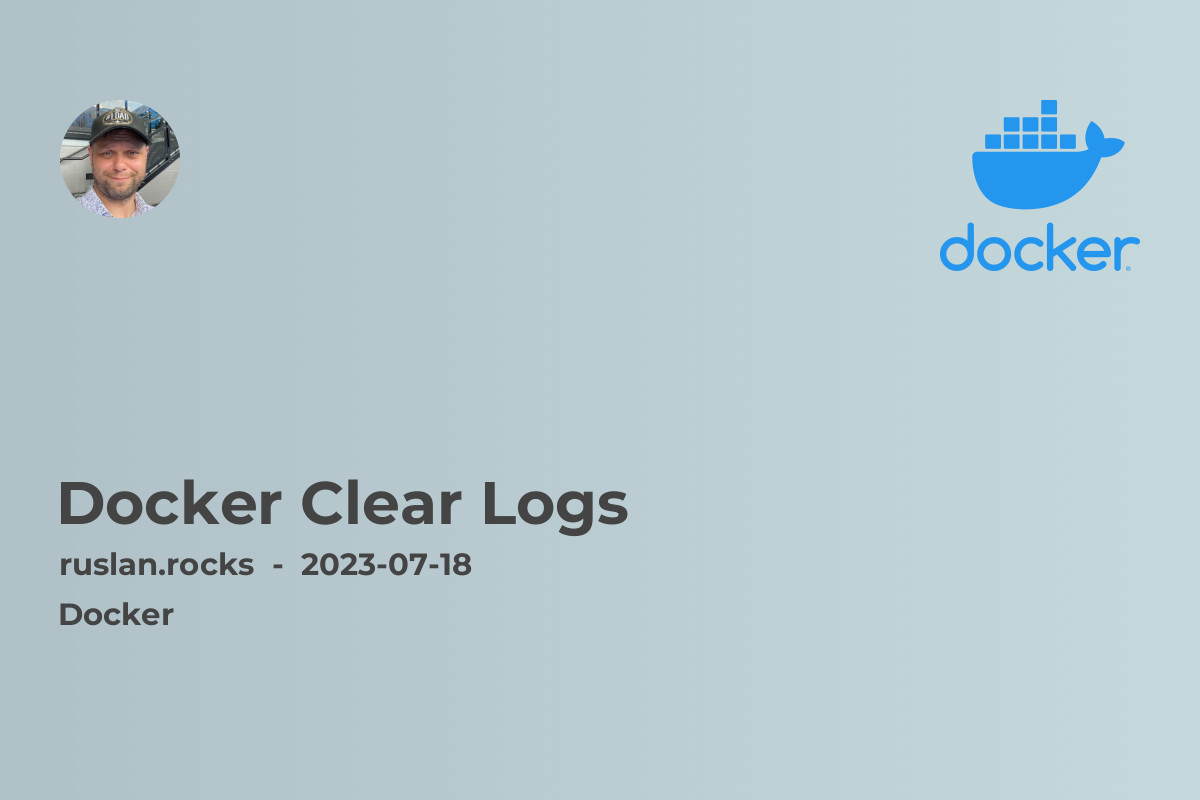- Understanding Docker Logs
- Why Clearing Docker Logs is Important
- Clearing Docker Container Logs
- Clearing All Docker Logs
- Rotating Docker Logs
- Best Practices for Docker Log Management
- Related Articles

Docker is a powerful tool used for containerization. Efficiently managing your Docker container logs is a crucial aspect of maintaining a healthy Docker environment. In this article, we will explore different methods to clear logs in Docker and keep your system running smoothly.
Understanding Docker Logs
Before diving into how to clear logs in Docker, let's first understand what Docker logs are. When you run a container using Docker, it generates logs that capture important information about the container's activities. These logs include application output, error messages, and other relevant details.
Why Clearing Docker Logs is Important
Over time, Docker logs can accumulate and consume disk space, especially in production environments where containers generate large volumes of logs. If left unchecked, these logs can affect system performance and hinder troubleshooting efforts. Clearing Docker logs periodically is essential to optimize disk usage and ensure efficient logging.
Clearing Docker Container Logs
To clear logs for a specific container, you can use the docker logs command with the --tail or --since options.
The --tail option allows you to specify how many lines of logs you want to display. To clear logs, simply set --tail to 0:
docker logs --tail 0 <container_name_or_id>
The --since option allows you to specify a timestamp, after which logs will be displayed. To clear logs, set --since to the current timestamp:
docker logs --since $(date +%s) <container_name_or_id>
Remember to replace <container_name_or_id> with the actual name or ID of the container you want to clear logs for.
Clearing All Docker Logs
If you want to clear logs for all running containers, you can use the Docker API to achieve this. The following script stops and removes all running containers, effectively clearing their logs:
docker stop $(docker ps -q) && docker rm $(docker ps -aq)
However, use this script with caution, as it will remove all running containers and their associated data.
Rotating Docker Logs
Another approach to managing Docker logs is log rotation. Log rotation involves creating backups of log files and replacing them with new ones to prevent disk space saturation. Docker provides built-in log rotation mechanisms that can be configured easily.
To enable log rotation, you can set the --log-opt flag when starting a container. For example, to rotate logs every day and keep the last 7 files, you can use the following command:
docker run --log-opt max-size=10m --log-opt max-file=7 <image_name>
This configuration rotates logs when they reach a maximum size of 10 megabytes (max-size=10m) and keeps a maximum of 7 log files (max-file=7). Adjust these values according to your requirements.
Best Practices for Docker Log Management
To optimize Docker log management, consider the following best practices:
- Regularly clear logs to prevent excessive disk usage.
- Use log rotation to maintain log files and prevent disk space saturation.
- Monitor log files for errors, warnings, and critical events to troubleshoot issues effectively.
- Centralize log collection using tools like Elasticsearch, Fluentd, or Splunk for efficient log analysis.
- Implement log retention policies to comply with data privacy and security regulations.
Related Articles
To further enhance your knowledge of Docker and related topics, check out these informative articles:
- What Is Docker Hub - Learn about Docker Hub, the official Docker registry for sharing container images.
- Docker Container Logs: A Guide to Managing and Analyzing Your Application Logs - Gain insights into managing and analyzing Docker container logs effectively.
- Docker Compose Install: A Comprehensive Guide - Explore a comprehensive guide to installing and using Docker Compose for container orchestration.
- Docker Security Best Practices: Ensuring Container Security - Discover best practices for securing your Docker containers and maintaining a robust security posture.
- Docker Networking - How To Connect Containers - Learn different networking options in Docker and how to connect containers for seamless communication.
By following these articles, you can expand your Docker knowledge and gain a deeper understanding of various Docker concepts and best practices.
In conclusion, managing Docker logs efficiently is crucial for maintaining a healthy Docker environment. By regularly clearing logs and implementing log rotation, you can optimize disk usage and streamline troubleshooting efforts. Employ best practices in Docker log management to ensure smooth operations and effective analysis of your containerized applications.
